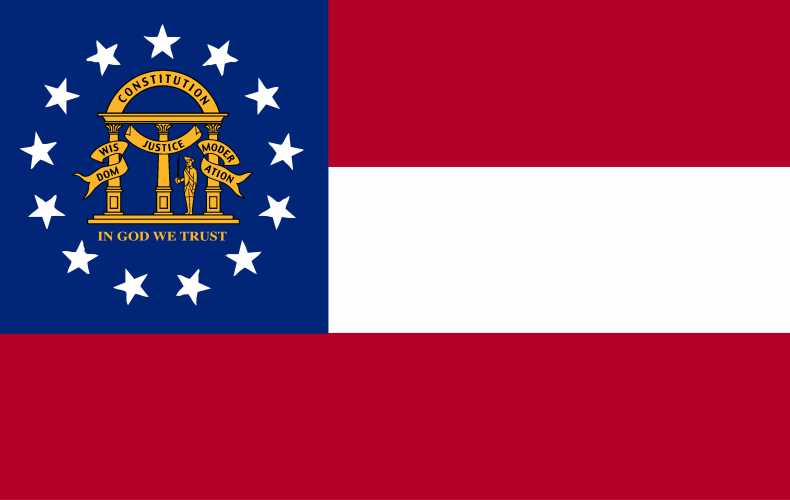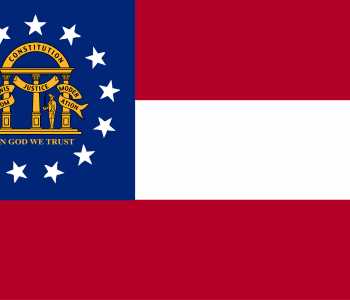Georgia Business License

Are you feeling overwhelmed by all the steps necessary to start your small business? One of the first steps you will need to take is to get your business license. This will make it legal for you to do business in the state of Georgia.
Before you rush out and start the application process, there are a few things you will need to consider. This article will cover the most important decisions you will need to make before you start filling out your business license application.
All new business owners in Georgia must register their company with the relevant government departments and state agencies. To avoid any legal problems, you have to obtain the proper business permits and licenses. You must also follow the rules and regulations of your state in specific. Here is a detailed list of the major business regulations for the state of Georgia.
5 to consider when registering for your business license:
1. Guidelines for Tax Regulation
All business owners within the state of Georgia have to obtain state and federal tax ID numbers for their tax returns. Additionally, every company operating within Georgia has to apply for each permit. registration, and license that pertains to business functions. These licenses and permits include use and sales tax, unemployment insurance tax, and income tax withholding.
You should also think about corporate franchise tax and corporate income tax. You can visit the Georgia Department of Revue's official site to learn more about the state's tax regulations.
2. Registration for Business Licenses
In the state of Georgia, all small business owners have to apply for a special license which corresponds to the type of company or service being provided. Grocery stores, bars, and restaurants that intend to sell alcoholic beverages have to apply for a liquor license to do so legally. Each business that charges a membership fee for access to its services has to purchase a buying service license.
In Georgia, a service license costs around $50 and is valid for around one year. It must be actively renewed each year. Business owners can learn more about these business and service licenses by visiting www.georgia.gov.
3. Incorporation Filing
As you prepare to file for your business license, you will need to decide your preferred entity, or structure, for your type of business. There are a few different types of business for which you can file. For example, if you know you will be the only employee of your business, you can simply file as a sole proprietorship.
However, if you know you will have employees, then you will need to file as either a limited liability company, general partnership, or corporation. With one of these entities, you will file for a Federal Employer Identification Number (EIN). This will allow you to use this tax identification number instead of your Social Security Number on your paperwork.
Under a sole proprietorship, the owner doesn't have to fill out any formal paperwork about the business. This isn't the case for other types of companies. If you own a limited liability company (LLC), a corporation, a nonprofit, or a limited liability partnership (LLP), you have to file some articles of incorporation as well as a business name. More detailed information can be found by visiting www.georgia.gov.
4. Filing Under a Fictitious Name
In Georgia, taxpayers can run a sole proprietorship under their legal name. If a business owner wants to use a name other than their own, they have to register a fictitious name. This application can be sent to the Georgia Secretary of State Corporations Division.
To operate a company in Georgia that is different from your legal name, you have to apply for a fictitious name from the Clerk of the Superior Court. You must register for your Trade Name in the same county in which you plan to conduct business. In general, each county follows similar processing procedures in regards to this formality.
If you file a fictitious name with the intent of "Doing Business As" (DBA), you can operate a general partnership or sole proprietorship under this business name. Limited partnerships, limited liability companies, corporations, and nonprofits don't require filing a DBA. All of these entities are allowed to register their company names through the Corporations Division.
5. Employer Regulations
All business owners in the state that hire employees have to follow general employer regulations to run a company within Georgia. Some many different guidelines and regulations come with this privilege. Below are some of the tax and insurance regulations you should be aware of:
Income Tax Withholding:
The Internal Revenue Service recommends that business owners maintain accurate records regarding employee tax withholding to simplify the tax filing process. This is also a good rule of thumb for anyone in charge of bookkeeping for a company.
As an employer, you're in charge of obtaining a signed tax withholding form from every employee. When you hire each employee, you have to have them fill out a Form W-4. This form has to be filed with an IRS by an employer who is responsible for income tax withholding.
Federal Tax and Wage Statement:
A federal tax and wage statement, formally known as a Form W-2, must be filed annually by employers in the state of Georgia. This filing must be completed by February or March of the past tax year with the helpful Social Security Administration.
Businesses have to send the primary copy of the signed Form W-2 to the Social Security Administration and other copies to each employee by January of that tax year. Each employer also has to complete a W-2 for every employee that gets paid a salary, wage, or compensation for the reported year.
Employee Eligibility Verification:
According to federal law, every employer has to obtain a signed and completed form of employment eligibility verification, also known as a Form I-9. This form must be filled out by each employee. Form I-9 helps to verify whether or not an employee has the right to work legally in the United States.
This form has to be signed and completed within three working days after a new employee gets hired. This law applies to non-citizens and citizens. If an employer does not submit the Form I-9 in time, the relevant employee won't be eligible to work. For this reason, employers must have each employee fill out the form and turn it in as fast as possible.
New Employee Hiring:
Every employer in Georgia has to report re-hires and new hires to the state's New Hire Reporting Program. There's an online form which can be filled out by employers each time there is a new hire. This makes it convenient, quick, and easy to report any new hires at your company.
As an employer, you're required to make this report even for hires that end up working for one day. All re-hires have to be reported by employers as well if they are coming back to work after a layoff, furlough, or from another job.
Insurance Requirements:
If you run a company with employees, you have to file a tax-and-wage report for every business quarter and send it to the Department of Labor in Georgia. Each employer will receive this report during the final week of each reporting quarter, and it must be returned by the due date. All employers are also required to disclose all wages paid to employees and any taxes that were paid on the initial $8,500 of earnings for each member of the staff per year.
This report can be filled out online or sent by mail. Employers are also obligated to have Workers' Compensation insurance. This insurance can be purchased through Georgia's Workers' Compensation Insurance Program or from a carrier. Employers also have the choice of being self-insured.
Conclusion
Being a part of the Georgia business community can be a fulfilling and rewarding experience. Don't wait another minute to realize your dreams of starting your new business. Use the information in this article to navigate the waters of filing for your business license.
FAQ
What are Georgia's licensing requirements?
No one license or permit is required for all business owners. However, most businesses will need some license depending on what type of business they are running. Corporations, limited partnerships, limited liability companies, and non-profit organizations must register with the Corporations Division at the Office of Secretary of State to operate in Georgia. Although sole proprietorships are not required to register with the Secretary, local licensing requirements may still exist.
Do local licensing requirements apply to businesses?
Nearly every city and county require local businesses to register and obtain the appropriate licenses in addition to their state requirements. A city will usually require a business to obtain a license if it is within its corporate limits. If a business is not within the city's limits, the county is the proper licensing authority. These local business licenses are also known as Business Tax Certificates. Always check with the local government office for information about licenses and permits required for your business.
Where can I apply for a business license?
Georgia permits business licenses are easy to obtain. Applications can be filed with the county or city office in which the business is located. Businesses in Atlanta, for example, would apply to the city's Business Tax Division. Savannah businesses would have to apply to the city's Revenue Department. General licenses can be used for one year but must be renewed each year.
What information do I need to include on my applications?
The information you need will vary depending on the application. However, the general rule is that you must provide the following:
- Name of the business
- Business address/location
- Federal and state tax identification numbers
- Names and addresses of the owners
- Any number of employees
- Type and nature of business
- Date of incorporation
It is possible to be asked how much your gross revenue is for the calendar year. Some professions require additional qualifications before a license can be issued.
What type of occupational licenses do you have?
More than forty professions are required to have licensure through the Professional Licensing Boards of Georgia to practice in the state. For more information about what professions must be specially licensed and the licensing requirements, visit http://sos.georgia.gov/plb/. The Administrative Offices for Professional Licensing Boards can be reached at (478)207-1300.






